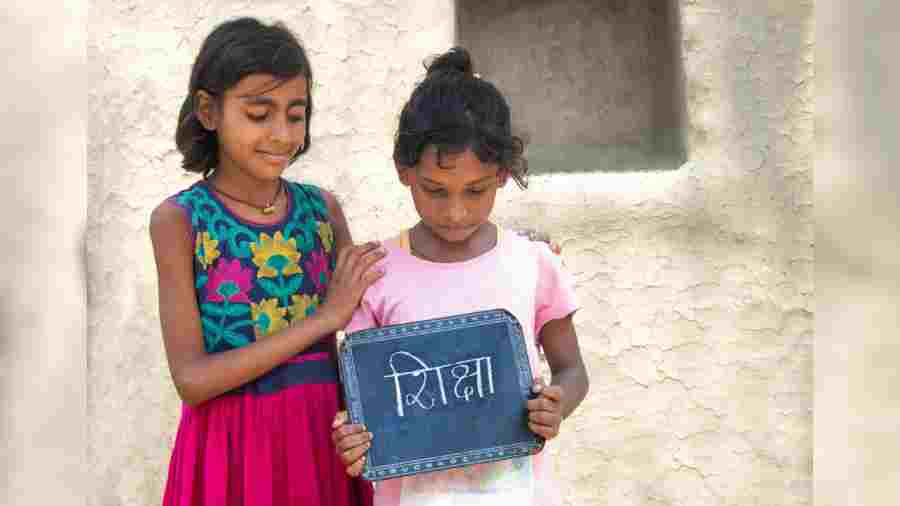A 17-year-old girl, who was forced into marriage, decided to leave her husband after a few years so she could study.
Anushree Haldar, now 20 years old, ended her marriage and came back home against her family’s wishes and is now a second-year undergraduate student at Berhampore College.
She cycles for 15 minutes up to the bus stop from her village Nandigram in Murshidabad and then takes a 45 minutes bus ride to reach the college.
Anushree faced resistance from her husband and her family but she had the courage and determination. With that will, she decided to leave her husband and his family.
She never looked back.
“Initially, my husband and in-laws did try to stop me but when they realised that I will not stay back, they gave up. I did not run away. I took a rickshaw and returned to my village,” she said.
But the 17-year-old was not welcomed at her own home. She did not have her family’s support to take admission in Class XI.
Anushree had some money that she had saved from some scholarships she had received earlier.
She used that to take admission in Amrita Kundu Krishna Kamini Vidya Mandir, a school in a neighbouring village.
“It does not take a lot of money to study in a government school. So, I could manage with what I had. Later, my mother accepted me and supported my decision,” said Anushree. Her father had passed away in 2012.
Anushree and some other young girls and boys were felicitated in a programme in the city recently organised by Nehru Yuva Kendra Sangathan (under the Union ministry of youth affairs & sports) and Unicef.
The young girls and boys have been fighting in their villages and neighbourhoods against child marriage, violence against children and gender equality.
They pledged to continue to do so.
Anushree’s fight did not end with her ending her marriage. But it continues as she tries to stop many others like her from getting married.
“It is important for girls to stand on their own feet. Unless girls study and get educated how will they become independent?” she told The Telegraph.
“During awareness campaigns carried out by the government, we hear that nobody should marry before the age of 18. But in reality, that is not the case. I try to build awareness among my friends or in my village that education and equality are important for a woman,” she said.
The chief of Unicef in Bengal said that young campaigners helped to spread awareness in the community, something that government schemes alone could not do.
There is Sana Tahseen from Kolkata, who spreads awareness to prevent violence against children. Soumen Das of Jalpaiguri works to raise awareness on education for girl children.
“There are schemes through which the government tries to curb child marriages. But there are certain norms in society that can be challenged by creating awareness and the youth help in doing that,” said Mohammad Mohiuddin, chief, Unicef office of Bengal.
“The percentage of women aged 20-24 married off before the age of 18 is 41.6 per cent, according to the recent National Family Health Survey (NFHS5),” he said.
Child marriage has adverse impacts on the health of the girl child. It cuts short girls’ schooling, restricts their entry into the workforce and brings lifelong subjugation and suffering.
